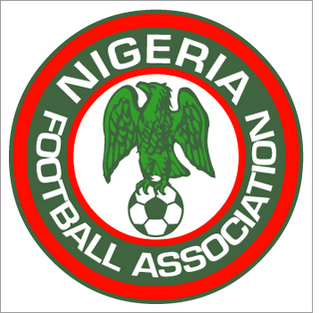Nigerian football has been plunged into a deep crisis following the confirmation of the much dreaded FIFA suspension of the country’s football federation, NFF. Although the usual events following a FIFA suspension result in a quick resolution of prevalent disputes so as to quicken the process of revoking the suspension, there is a possibility of the suspension evolving into an outright ban.
FIFA have clearly stated that for the decision of a suspension to be overturned, ‘the properly elected NFF Executive Committee, the NFF general assembly and the NFF administration [must be] able to work without any interference in their affairs’. It also says that ‘court actions [against them must] have been withdrawn’.
In the event that these conditions are not met, there are bound to be unsavoury effects for Nigeria football and also for the biggest investors.
The most likely to be directed affected are the various sponsors of the Nigerian national team who enjoy the most prominence when the team is in action. Globacom, Guinness, Malta Guinness, Peak Milk, Tom Tom among others will see their potent marketing asset- the Super Eagles- rendered valueless for the duration of the possible FIFA ban. Given that the terms of their corporate partnerships allow for media and advertisement leveraging of the Super Eagles, these sponsors may seek to offset the loss of the visibility during Super Eagles games and events with a range of outdoor and multimedia advertisements. However, the long-term issue is that should the Super Eagles remain out of action for an extended period of time, the various brand messages that have been based on the national team will lose meaning.
The timing of the FIFA suspension is more regrettable for the sponsors as the national team are enjoying a patch of great press having performed commendably at the World Cup and also, more importantly for local pride, remain the champions of Africa with defence of their title set to kick off only seven months from now. Should the ban prevail over the next seven months during which brands would have sought to explore the possibility of a successful AFCON defence by the Super Eagles and strengthen their messages around such, these brands will have lost critical visibility and also an excellent chance to deepen the consumer loyalty as well position their brands to become more endearing for prospective consumers. Simply put, the corporate partners of the Super Eagles may see their multi-million naira partnerships become worthless.
Perhaps even more saddening is the fact that the Super Eagles have, in the past, struggled to be an attractive brand worthy of corporate and lucrative brand association, and in the period in which they are seemingly enjoying an all time high as regards corporate partnerships, their progress is halted. If a lengthy ban prevails, the Super Eagles will go from being the most attractive football brand in Africa to being one that does not represent value for money. Given how much effort it has taken to create a lucrative brand Super Eagles, that prospect is starkly depressing.
The national team sponsors will not be the only affected as the fallout of a possible ban will also hit the media hard. Broadcast and transmission of football in Nigeria is a lucrative niche business with the rights for transmission of the World Cup on terrestrial television in Nigeria said to have cost in excess of $5 million. With the new direction of the Confederation of African Football (CAF) which seeks to similarly optimize what is known in sports business circles as ‘TV money’, the rights to broadcast the AFCON tournament as well as the qualifiers which begins in weeks will attract a steep premium. With the Super Eagles possibly not taking part in either the event or qualifiers, broadcast companies will see a fantastic investment opportunity slip away. With a multitude of brands falling over themselves to secure advertisement placements during Super Eagles’ games, the total loss of revenue will easily run into hundreds of millions of naira.
There is also the issue of the ban preventing Nigerian clubs from participating in lucrative continental competitions such as the CAF Champions League and the CAF Confederations Cup, both of which are title sponsored by telecommunications heavyweights Orange. This will see Nigerian clubs miss out on an excellent opportunity to generate revenue as group stage participants in the Orange CAF Champions League could earn between $400,000 and $1.5 million. The Orange CAF Confederations Cup also promises lucrative prize money with participants of the group stage possibly earning between $150,000 and $625,000 as well as a total of $125,000 paid out to national football associations of participating clubs.
For the average football fan, a ban will mean not watching the darling Super Eagles and a host of Nigerian clubs play continental football but for the investors- corporate sponsors, broadcast right acquisition companies, merchandize manufacturers and many more- the prospective FIFA ban will mean loss running into millions of dollars. Fans of football in Nigeria are all praying that the FIFA suspension is revoked soon but they can be rest assured that across corporate offices, the same prayers are being echoed.








